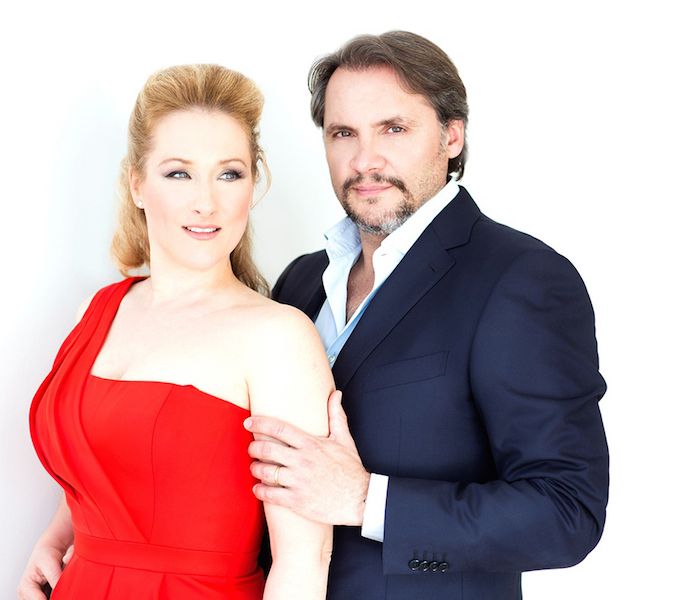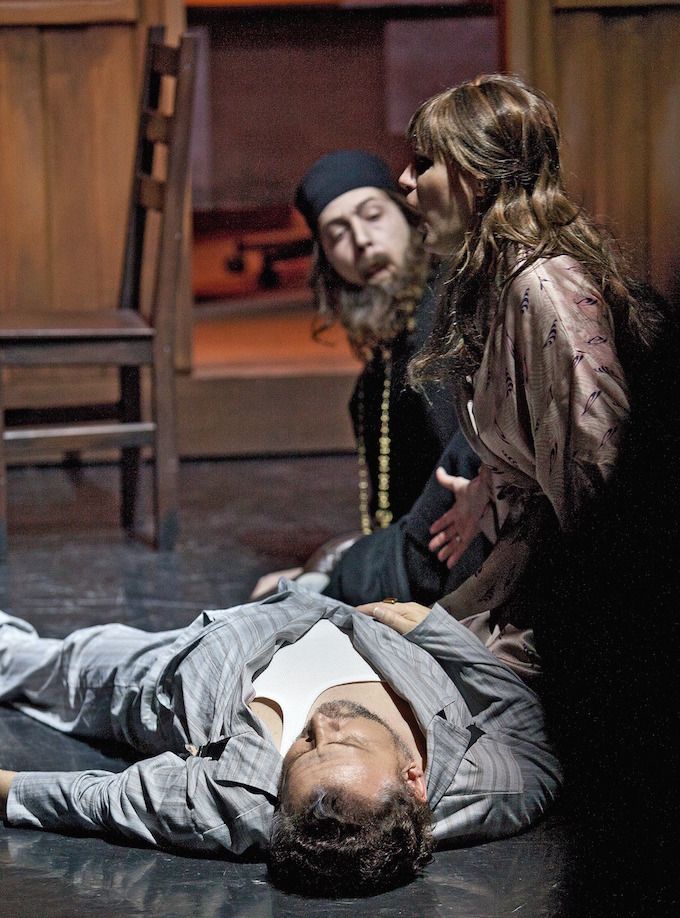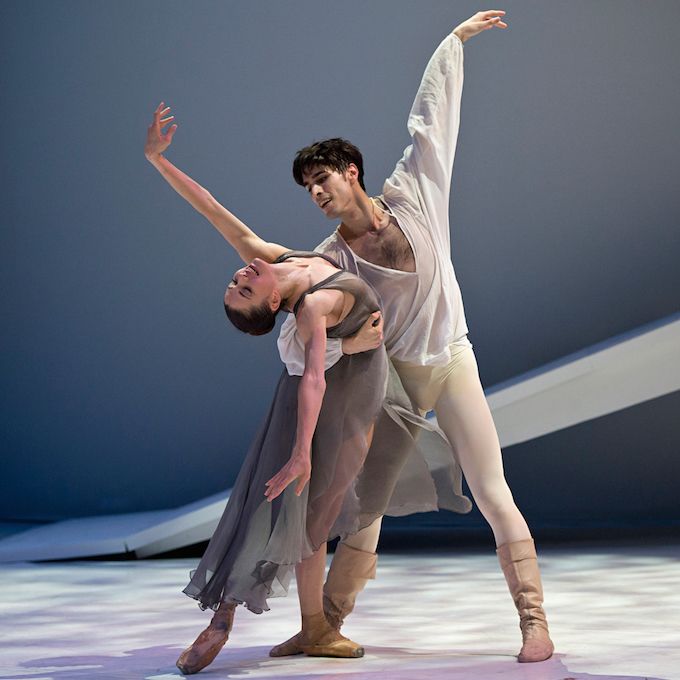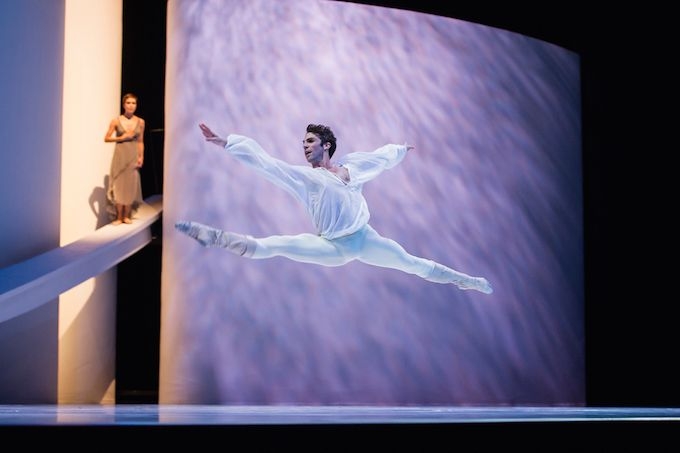April highlights in Monaco include the Shostakovich opera Lady Macbeth of Mtsensk and Jean-Christophe Maillot’s Romeo et Juliette.
This month Monte-Carlo Opera presents German soprano Diana Damrau her husband, French bass-baritone Nicolas Testé, who open their European tour of In Love with Bel Canto at a gala performance in Monte-Carlo on April 10th.
Miss Damrau has recently appeared on the stage of the Metropolitan Opera as Leïla in Bizet’s The Pearl Fishers, and in the title role of Massenet’s Manon, the latter being described by the New York Times as “the most vivid, exciting take on Manon at the Met in many years”.
Mr. Testé also appeared in the Met’s production of Manon, his performance praised by BWWOperaWorld.com as “a gorgeously sung Comte des Grieux (the Chevalier’s father) in his role debut . . .”, with what New York Classical Review described as “his smoky, imposing voice”.

In Love with Bel Canto features a selection of arias, overtures and orchestral excerpts from some of the best loved operas of the Bel Canto era and tradition, such as Verdi’s La traviata and Luisa Miller, Donizetti’s Lucia di Lammermoor, and Bellini’s I Capuleti e i Montecchi and Norma.
The Monte-Carlo Philharmonic Orchestra is led by Canadian conductor Jacques Lacombe, currently Music Director of Canada’s l’Orchestre symphonique de Trois-Rivières, and the New Jersey Symphony Orchestra. Mr Lacombe has been invited to conduct the Boston Symphony Orchestra at the opening concert of the 75th season of the Tanglewood Music Festival in July.
In Love with Bel Canto takes place on one night only – April 10th – at the Auditorium Rainier III, at 8.00 pm. For tickets, visit the Monte-Carlo Opera website.
Dmitri Shostakovich started writing Lady Macbeth of Mtsensk in the autumn of 1930. The libretto, by Alexander Preys, was based on the book, Lady Macbeth of the Mtsensk District by Nikolai Leskov, and tells a violent story of lust, betrayal, revenge and murder.
The opera was premiered in Leningrad in January 1934. It was well received by both audiences and at an official level, and performed widely in the Soviet Union – as well as in Copenhagen, Prague, New York and London – until an anonymous article appeared in Pravda on January 28th, 1936, denouncing the opera, with a violent verbal attack on both the composer and his works. It’s thought to be almost certain that Stalin was involved in the writing of this letter. Consequently, the opera disappeared almost overnight, and it wasn’t until Shostakovich produced his Fifth Symphony, subtitled ‘A Soviet Artist’s Response to Just Criticism’ that he managed to redeem himself with the authorities.

Shostakovich revised the opera in the late 1950s, and re-titled it Katerina Izmailova. It was performed in Moscow in 1963, with Nikita Kruschev in the audience, and performed at Covent Garden later that year. Today, the original version is the version most often performed.
In this performance, which is part of the ongoing Russia in Monaco festival, the title role is sung by German-born soprano Nicola Beller Carbone. Tenor Ludovit Ludha sings the role of Katerina’s husband, Zinovi, and Alexeï Tikhomirov is her father-in-law, Boris.
Jacques Lacombe conducts the Monte-Carlo Opera Orchestra and Chorus (chorus master Stefano Visconti) in three performances of Lady Macbeth of Mtsensk at the Monte-Carlo Opera on April 24th, 26th and 28th. For tickets, visit the Monte-Carlo Opera website.
In Jean-Christophe Maillot’s interpretation of Shakespeare’s tragedy of young love, Romeo et Juliette, the story is told through the eyes of Friar Lawrence who – tragically and unintentionally – causes the deaths of the young lovers. He sincerely believes that he can end the war between the Montagues and the Capulets, reasoning that the love shared by their two children will bring them together, however what is described as “the impatience of Romeo and Juliet” only deepens the rift, leading to the tragic denouement.
Not only does the focus of the story in this production depart from its usual path, but Maillot also introduces techniques from the world of cinematography – flashbacks to portray Friar Lawrence’s intropection, as well as freeze-frames and slow motion. He also positions his dancers on the diagonal so that they never face the audience directly.
Another departure from Shakespeare’s play is that the main roles are taken by the women – Juliet, Lady Capulet and Rosaline – Juliet’s nurse. The fathers of the warring families are virtually absent. For this production, however, Maillot does revert to the Prokofiev score (his first version of Romeo et Juliette in 1986 used a contemporary score by Michel Beuret). Set design is by Ernest Pignon-Ernest, costumes by Jérome Kaplan and lighting by Dominique Drillot.

Romeo et Juliette takes place on April 16th, 17th, 18th and 19th, in the Salle des Princes at the Grimaldi Forum Monaco. Tickets may be obtained by calling the Grimaldi Forum on 00377 99 99 30 00 (Tuesday to Saturday between 12 noon and 7.00 pm) or the Atrium of the Casino, Monte-Carlo on 00 377 98 06 28 28 (Tuesday to Saturday between 10.00 am and 5.00 pm); in person at the Grimaldi Forum (Tuesday to Saturday between 12 noon and 7.00 pm) or at the Atrium of the Casino, Monte-Carlo (Tuesday to Saturday from 10.00 am to 5.30 pm); or online.
Romeo et Juliette will be performed at the London Coliseum from April 23rd to 25th, and in Paris at Versailles-Jardins de l’Orangerie on June 23rd and 24th.
Gilly Lloyd is a journalist, copy and creative writer, and editor of Preview, as well as a regular contributor to the Arts section of Examiner.com
Lead and final images © Alice Blangero; all other images © D.R. and courtesy Opéra de Monte-Carlo




Leave a Reply